Connecting to Wekinator with face OSC
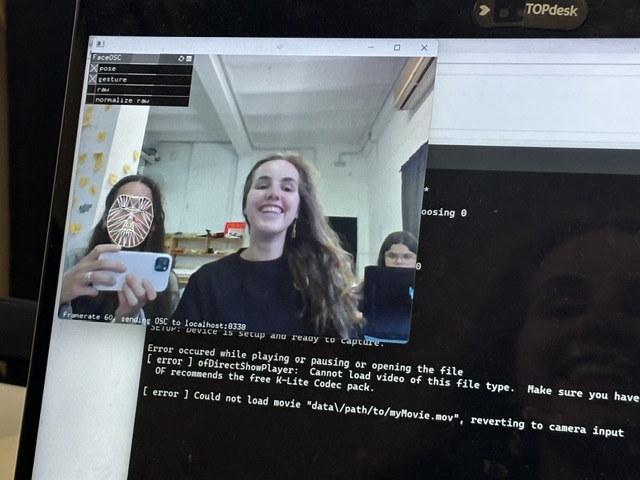
Opening FaceOSC
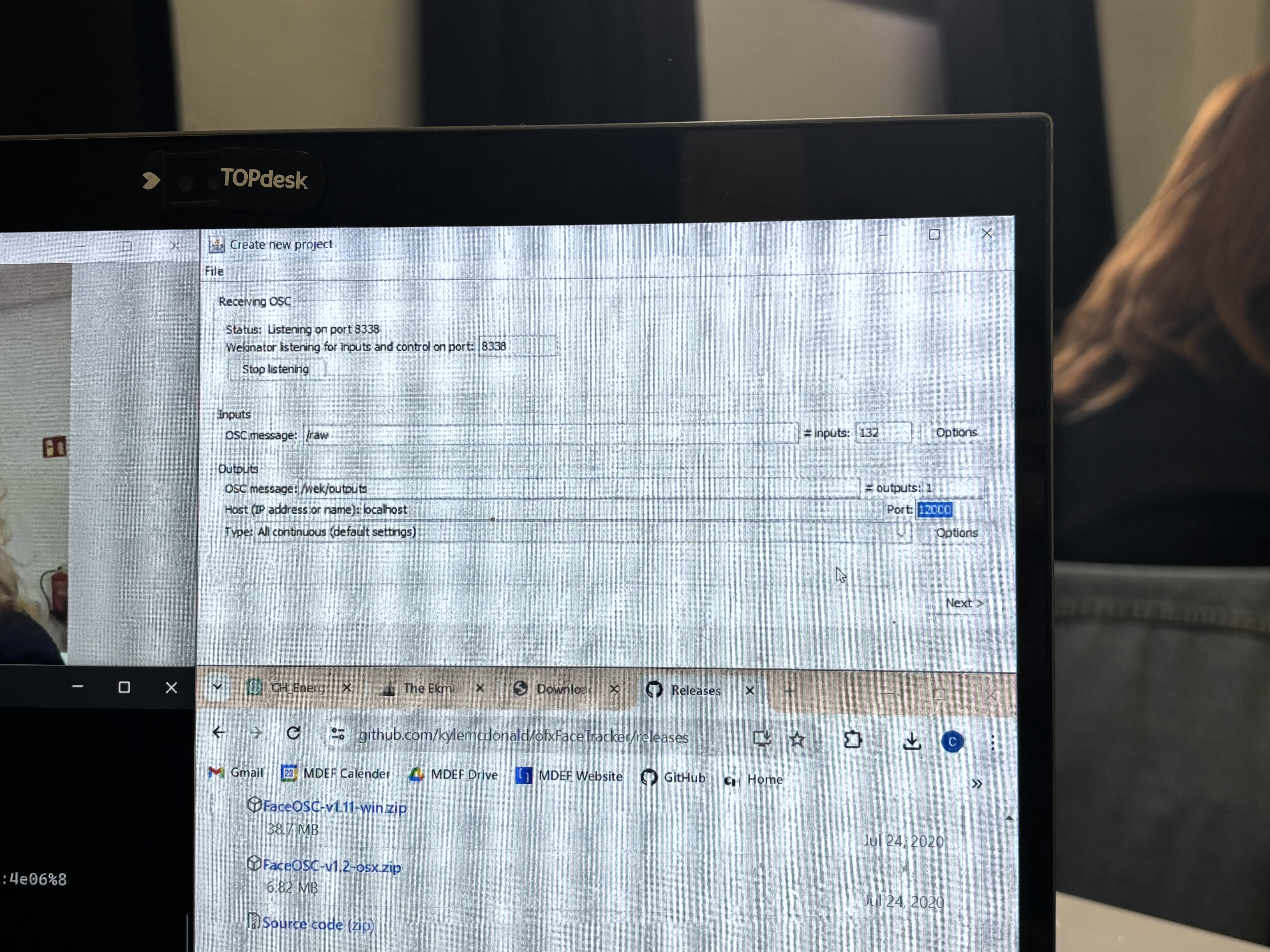
Connecting to wekinator
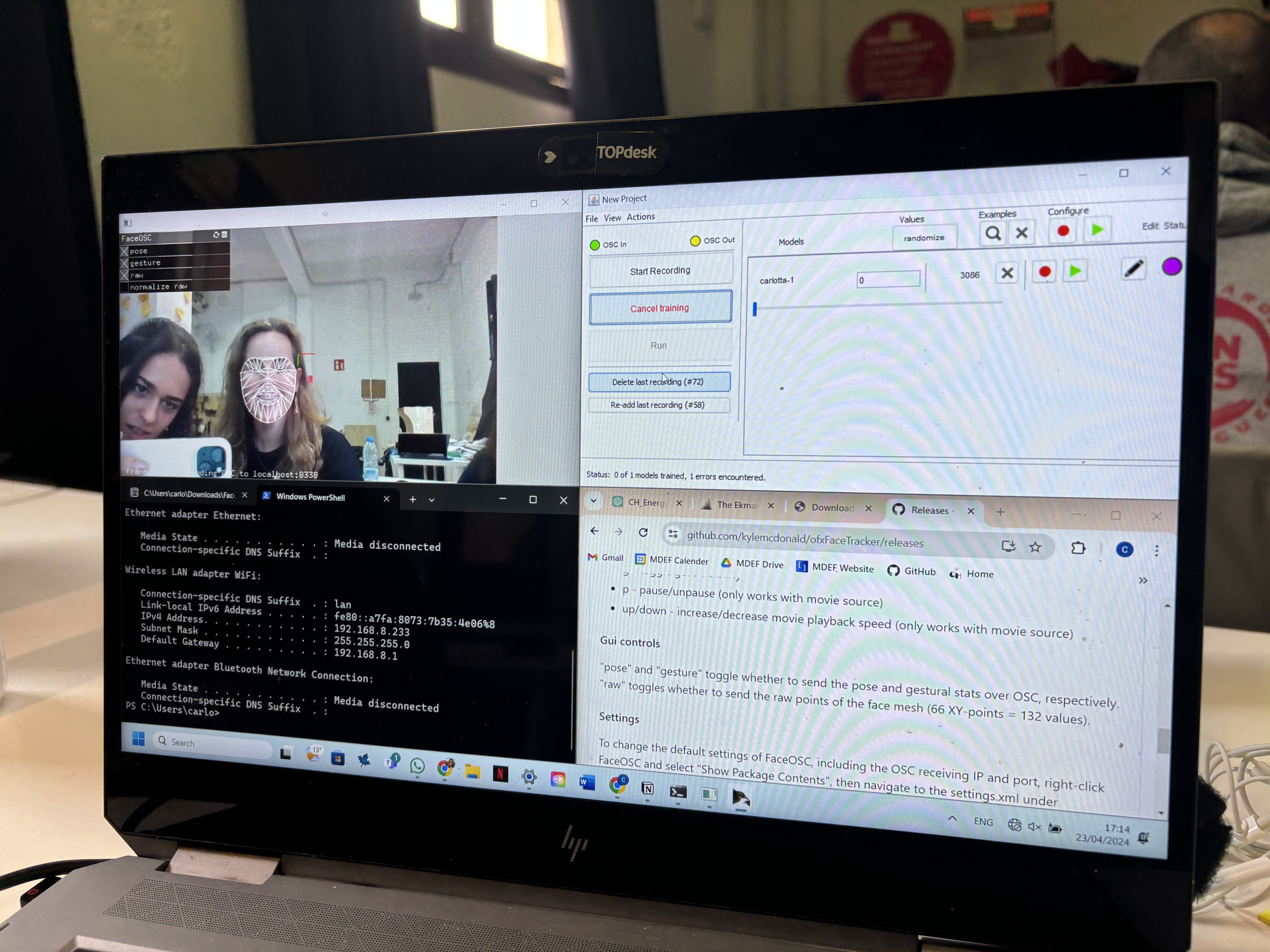
Reflection
This seminar was inspiring due to its fascinating complexity. What I mean by that is, despite the number of steps involved, the hands-on prototyping technique gave fast results, making it fun to experiment with. Once you grasped the communication mode, there were a lot of ways to reinterpret the task, which was helpful in generating ideas for integrating these technologies into my research context.
I also believe wearables are seeking ways to minimise energy consumption for various purposes. That's why learning about her approach to customising wearables, such as creating your own Arduino board, was intriguing in the scope of low-power device research (the concept of hacking). I've observed individuals customising their Arduino Pro Mini to achieve very low current draw, enabling better adaptation to low-power devices. Perhaps in my future research, I'd like to explore creating low-power consumption boards powered by alternative energy sources. This could be practical for others interested in prototyping in a similar way.
While I had a bit of prior knowledge on the subject, this seminar provided the opportunity to fully explore what the softwares had to offer. Collaborating with my classmates was also an empowering way to interact, especially with the MDEFest approaching; we're keen on expanding our communication methods as much as possible.
Random thoughts:
- All the examples shown during the presentation were super cool.
- I have a lot of respect for people who work with their bodies in art installation.
- Don't know much about coding so learning about live coding was nice. Gives ideas for the future.



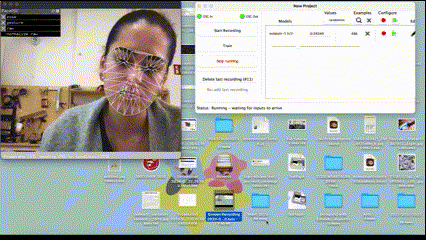
Prototyping of a touch sensitive sensor
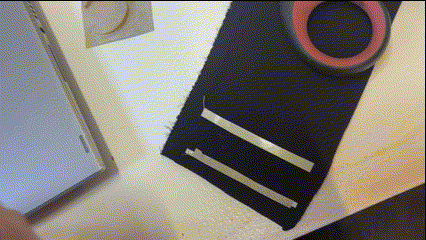
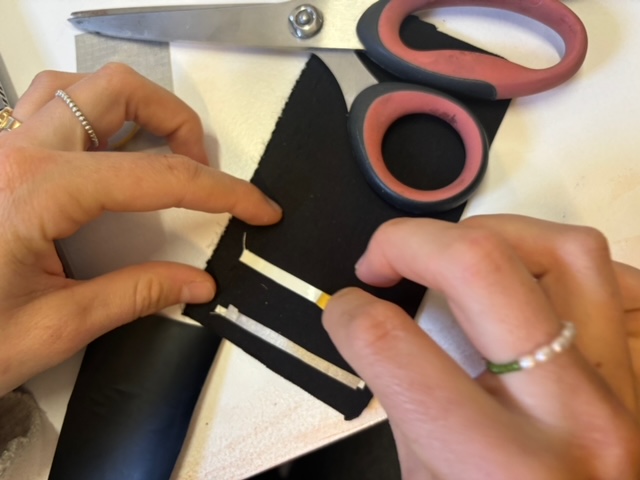
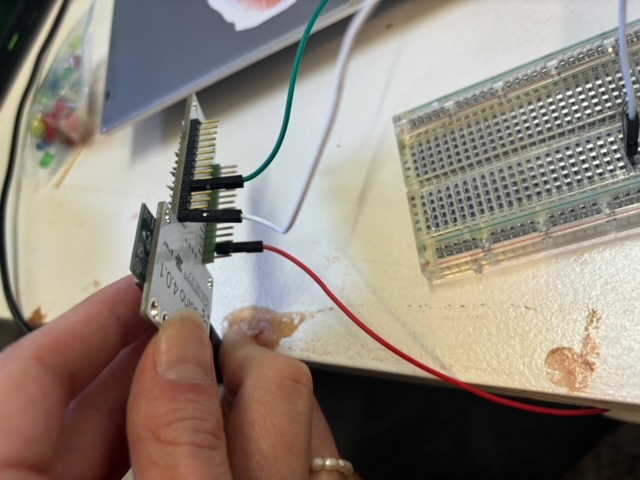
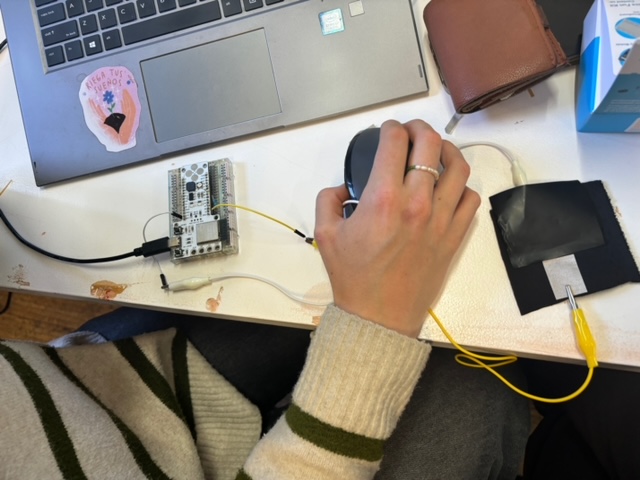
Offline Website Software